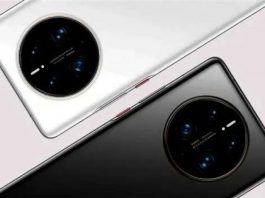With the release of the Mate 40 series, Huawei equally took the veil off the Kirin 9000 processor. The chipset is the brand’s first chip built on a 5nm silicon. It also integrates 15.3 billion transistors, the first chipset to do so.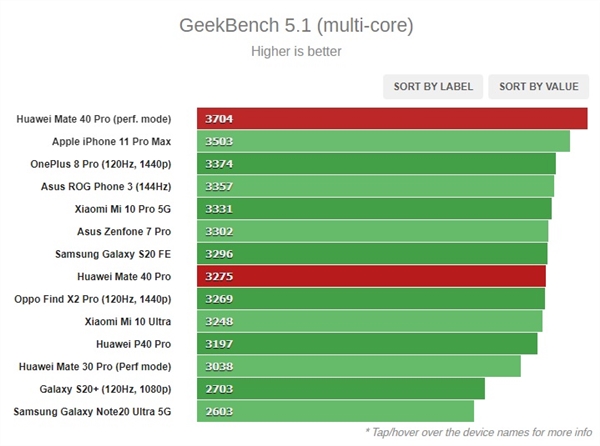
The Kirin 9000 integrates a 24-core Mali-G78 GPU which has an architecture that is more than the Kirin 990’s Mali-G76 GPU. The number of cores is also increased by half, and the performance is increased by 60%).
Several benchmark tests for the Kirin 9000 has emerged, thanks to GSMArena’s review of the Mate 40 Pro which is powered by the chipset. The tests which include GeekBench, 3DMark and GFXBench detail the performance of the flagship SoC. In all the tests, the Kirin 9000 performance surpasses the Snapdragon 865+ in terms of multi-core performance and equally outperforms Apple’s A13 Bionic.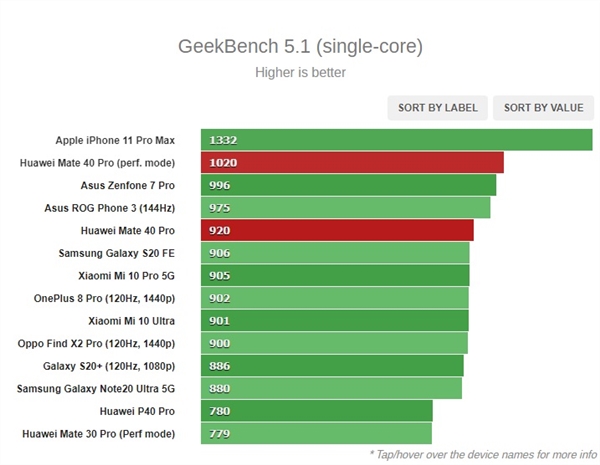
The Mate 40 Pro model under review features 8GB of RAM and 256GB of storage. The phone was tested under the Performance mode which can be tweaked under the battery settings. The mode unlocks the full potential of the phone. Also, the test was carried out under the normal mode. 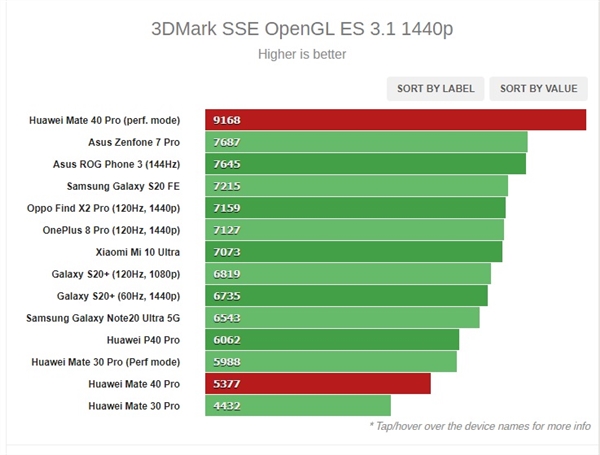
The Mate 40 Pro outperforms the iPhone 11 Pro Max and all the flagship Snapdragon processors released this year in GeekBench’s multi-core CPU test. The Kirin 9000 also floors the Snapdragon 865+ in the single-core test.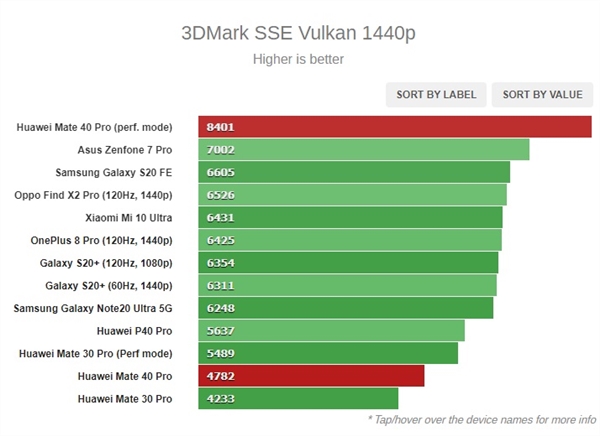
In terms of the graphics performance, 3D Mark test shows the Mali-G78 GPU in the Mate 40 Pro posts superb numbers for both OpenGL and Vulcan based applications. The processor has a 20-30% advantage over the Snapdragon 865 and SD865+ devices.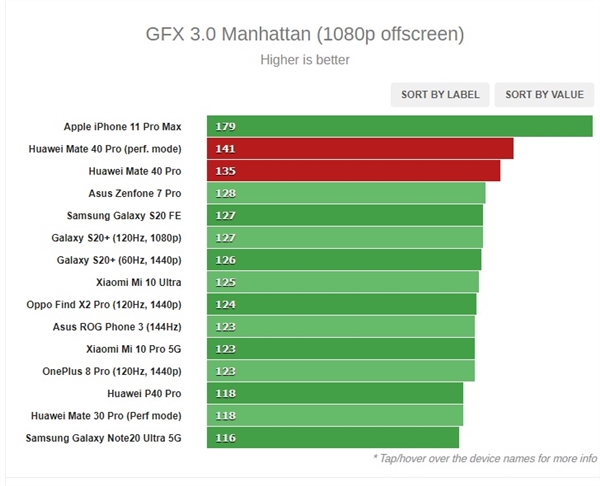
On the GFXBench test, the Mate 40 Pro display doesn’t perform better than other models in onscreen tests as the higher resolution seems to affect its performance against 1080p rivals in the onscreen tests. However, it performs better than 2020 flagship models that have 1440p displays by a wide margin.
The Kirin 9000’s performance in AI benchmark also outperforms other models. But the AnTutu benchmark ranking falls short of the newly announced Samsung Exynos 1080 chipset.
UP NEXT: POCO C3 for Rs 7,499 (~$102) brings 6.53-inch display, Helio G35, 13MP triple cameras and 5,000mAh battery

